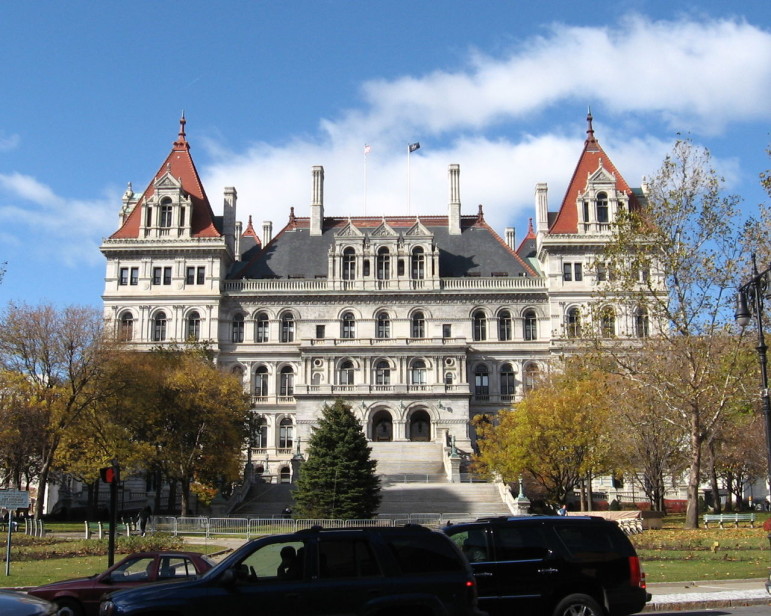
Kurtman518
The state capitol in Albany. Since the rent regulations issue could decided by three men in a room, amid a swirl of other policy decisions, the outcome of the debate over the rent laws is hard to predict.
Dozens of variables will determine whether Mayor de Blasio achieves his promise of building or preserving 200,000 units of affordable housing over the next 10 years, from the international market for tax credits to the political climate at local community boards.
But the biggest factor in deciding whether New York City actually gets more affordable over the next decade may be settled late next spring in the state capitol, when the legislature once again considers renewing rent regulations that affect nearly 1 million apartments.
As we report in this week’s edition of City & State–the first installment of an editorial partnership between our two outlets focusing on housing issues–the June 15 sunset of rent regulations sets up a high-stakes battle between tenant advocates and landlord groups. Nearby deadlines for renewing the 421a, J51 and coop & condo tax breaks only add to the impact that the Assembly and Senate will have on housing in the city.
Both tenants’ and landlords’ representatives cast the rent-regs debate as critical to the future of the housing stock.
Tenants feel they current system is eating itself alive through vacancy decontrol, which entices landlords to use mechanisms in the laws–like vacancy bonuses and major capital improvements–to jack up rents until apartments can be deregulated altogether.
Landlords believe the last renewal of the laws in 2011, and subsequent regulatory actions by the Cuomo administration, tilted the balance unfairly toward tenants. Combined with the record low increase approved earlier this year by the Rent Guidelines Board, the Rent Stabilization Association (that’s the landlord trade group) warns that apartment conditions will start to deteriorate if property owners can’t generate enough revenue to cover costs.
And so, tenant and landlord groups have all been gearing up for a battle in Albany this spring that could rival the previous renewal episodes (1993, 1997, 2003 and 2011) for drama and impact. Both sides put money into key elections this fall, and the results clearly favor landlords, as a Republican Senate is unlikely to give tenant groups anything they want.
But there is still an element of suspense. That’s because the stakes are so high, the laws are so complicated, the rivals’ wish-lists are so long and the interplay of forces in Albany, where the budget, school control and other issues will also be on the table next year, is so complex.
Taken together, it means the debate over rent regs didn’t end but rather began on Election Night. Read more about it.








